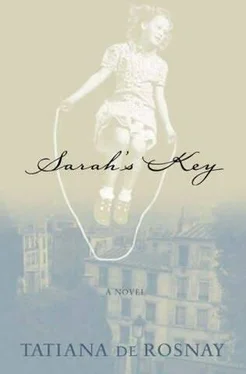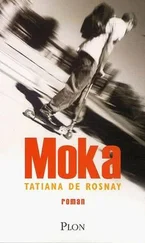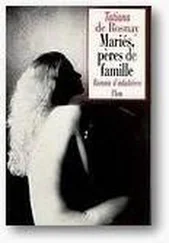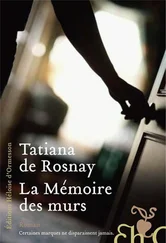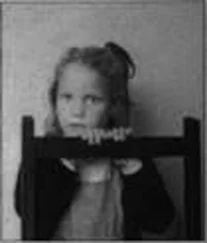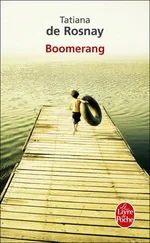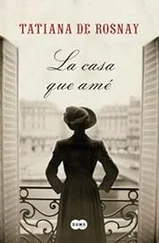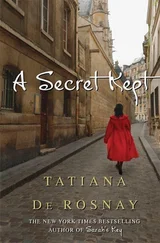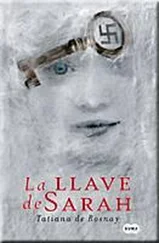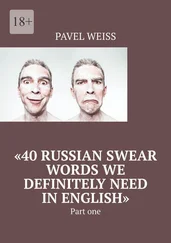“And what are you writing about at the present?” asked Guillaume politely, twisting green pasta around his fork.
“The Vel’ d’Hiv’,” I said. “The sixtieth commemoration is coming up.”
“You mean that roundup during the war?” asked Christophe, his mouth full.
I was about to answer him when I noticed that Guillaume’s fork had stopped halfway between his plate and his mouth.
“Yes, the big roundup at the Vélodrome d’Hiver,” I said.
“Didn’t that take place somewhere out of Paris?” Christophe went on, munching away.
Guillaume had put his fork down, quietly. Somehow his eyes had locked onto mine. He had dark eyes, a sensitive, fine mouth.
“It was the Nazis, I believe,” said Hervé, pouring out more Chardonnay. Neither of them seemed to have noticed Guillaume’s tight face. “The Nazis who arrested Jews during the Occupation.”
“Actually, it wasn’t the Germans-,” I began.
“It was the French police,” interrupted Guillaume. “And it happened in the middle of Paris. In a stadium which used to house famous bike races.”
“Really?” asked Hervé. “I thought it was the Nazis, in the suburbs.”
“I’ve been researching this for the past week,” I said. “German orders, yes, but French police action. Weren’t you taught this in school?”
“I can’t remember. I don’t think so,” admitted Christophe.
Guillaume’s eyes, looking at me again, as if he were drawing something out of me, probing me. I felt perturbed.
“It’s quite amazing,” said Guillaume, with an ironic smile, “the number of French people who still don’t know what happened. What about the Americans? Did you know about it, Julia?”
I did not avert my eyes.
“No, I didn’t know, and I wasn’t told about it at school back in Boston in the seventies. But now I know a lot more. And what I have found out has overwhelmed me.”
Hervé and Christophe remained silent. They seemed at a loss, not knowing what to say. Guillaume finally spoke.
“In July ’95, Jacques Chirac was the first president ever to draw attention to the role of the French government during the Occupation. And toward this particular roundup. His speech made headlines. Do you remember it?”
I had read Chirac’s speech during my recent research. He had certainly gone out on a limb. But I had not recalled it although I must have heard it on the news six years ago. And the boys-I couldn’t help calling them that, I always had-obviously had not read or remembered Chirac’s speech. They gazed at Guillaume, embarrassed. Hervé chain-smoked and Christophe bit his nails, which he always did when he felt nervous or ill at ease.
Silence fell upon us. It was odd, silence in this room. There had been so many joyful, noisy parties here, people roaring with laughter, endless jokes, loud music. So many games, birthday speeches, dancing till the small hours, despite irate neighbors banging from underneath with a broom.
The silence felt heavy and painful. When Guillaume started to speak again, his voice had changed. His face had changed too. He was pale, and he could not look at us any longer. He stared down at his plate of untouched pasta.
“My grandmother was fifteen the day of the roundup. She was told she was free because they were only taking small children between two and twelve with their parents. She was left behind. And they took all the others. Her little brothers, her little sister, her mother, her father, her aunt, her uncle. Her grandparents. It was the last time she ever saw them. No one came back. No one at all.”

THE GIRL’S EYES WERE glazed over with the ghastliness of the night. In the small hours, the pregnant woman had given birth to a premature, stillborn child. The girl had witnessed the screams, the tears. She saw the baby’s head, mottled with blood, appear between the woman’s legs. She knew she should be looking away, but she could not help staring, appalled, fascinated. She saw the dead baby, gray and waxen, like a shrunken doll, promptly hidden behind a dirty sheet. The woman moaned constantly. No one could silence her.
At dawn, her father had fished through the girl’s pocket for the key to the secret cupboard. He took it and went to talk to a policeman. He brandished the key. He explained the situation. He was trying to remain calm, the girl could tell, but he was at the breaking point. He had to go and get his four-year-old son, he told the man. He would return here, he promised. He would fetch his son and come straight back. But the policeman laughed in his face and sniggered, “You think I am going to believe you, my poor man?” The father urged the man to come with him, to accompany him, he was just going to get the boy and come back, immediately. The policeman ordered him out of the way. The father returned to his place, his shoulders stooped. He was crying.
The girl took the key from his trembling hand and put it back into her pocket. How long could her brother survive, she wondered. He must still be waiting for her. He trusted her; he trusted her implicitly.
She couldn’t bear the idea of him waiting in the dark. He must be hungry, thirsty. His water had probably run out. And the battery on the flashlight. But anything was better than here, she thought. Anything was better than this hell, the stink, the heat, the dust, the people screaming, the people dying.
She looked at her mother, crouched by herself, who hadn’t uttered a whimper in the last couple of hours. She looked at her father, his face haggard, his eyes hollow. She looked around her, at Eva and her exhausted, pitiful boys, at all the other families, at all these unknown people, who, like her, had yellow stars on their chests. She looked at the thousands of children, running wild, hungry, thirsty, the little ones who could not understand, who thought it was some bizarre game that had gone on too long, and who wanted their homes, their beds, their teddy bears.
She tried to rest, putting her pointed chin back onto her knees. The heat came again with the rising sun. She didn’t know how she was going to face another day here. She felt weak, tired. Her throat was parched. Her stomach ached with emptiness.
After a while, she dozed off. She dreamed she was back home, back in her little room overlooking the street, back in the living room where the sun used to shine through the windows and make patterns on the fireplace and on her Polish grandmother’s photograph. And she would listen to the violin teacher play to her across the leafy courtyard. “Sur le pont d’Avignon, on y danse, on y danse. Sur le pont d’Avignon, on y danse tout en rond.” Her mother was making dinner, singing along,Les beaux messieurs font comme ça, et puis encore comme ça. Her brother was playing with his little red train down the long corridor, sliding it over the dark floorboards with a clatter and a bang. Les belles dames font comme ça, et puis encore comme ça. She could smell her home, its comforting scent of candle wax and spices, and all the tempting things cooking in the kitchen. She could hear her father’s voice, reading to her mother. They were safe. They were happy.
She felt a cool hand on her forehead. She looked up to see a young woman wearing a blue veil branded with a cross.
The young woman smiled at her and handed her a cup of fresh water, which she drank avidly. Then the nurse gave her a papery biscuit and some canned fish.
“You must be brave,” murmured the young nurse.
But the girl saw that she, too, like the girl’s father, had tears in her eyes.
“I want to get out,” whispered the girl. She wanted to go back to the dream, to the peace and safety she had felt.
Читать дальше
